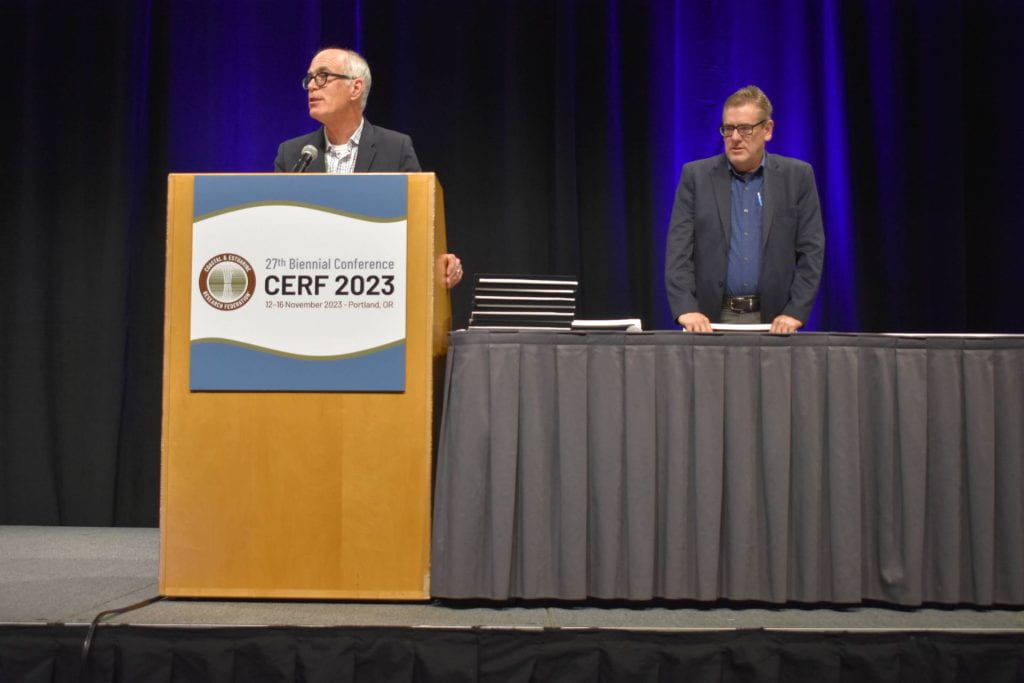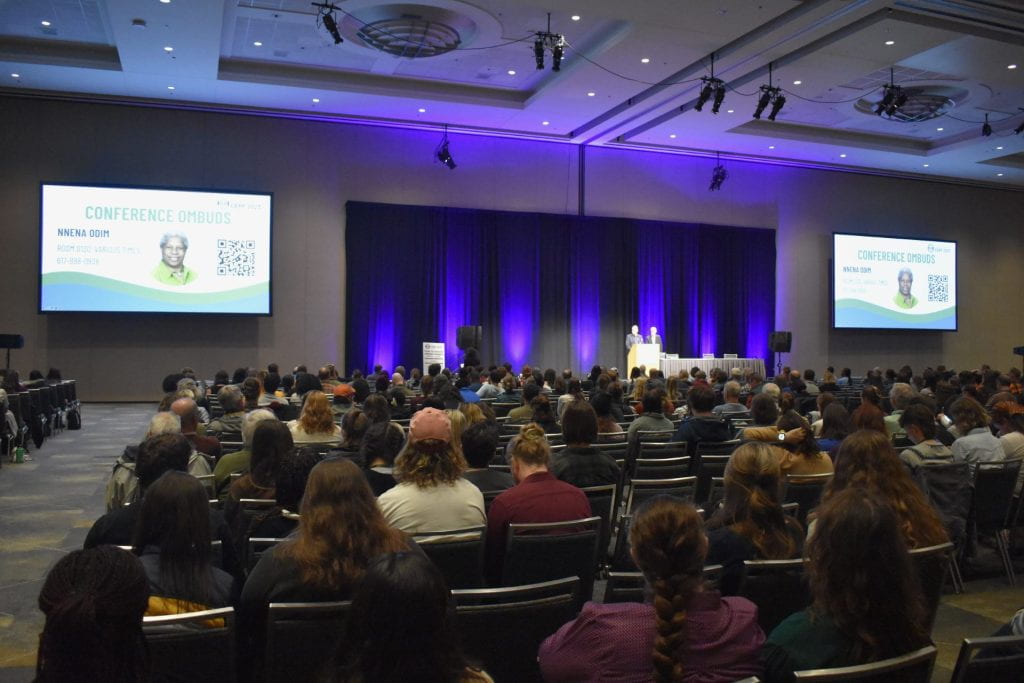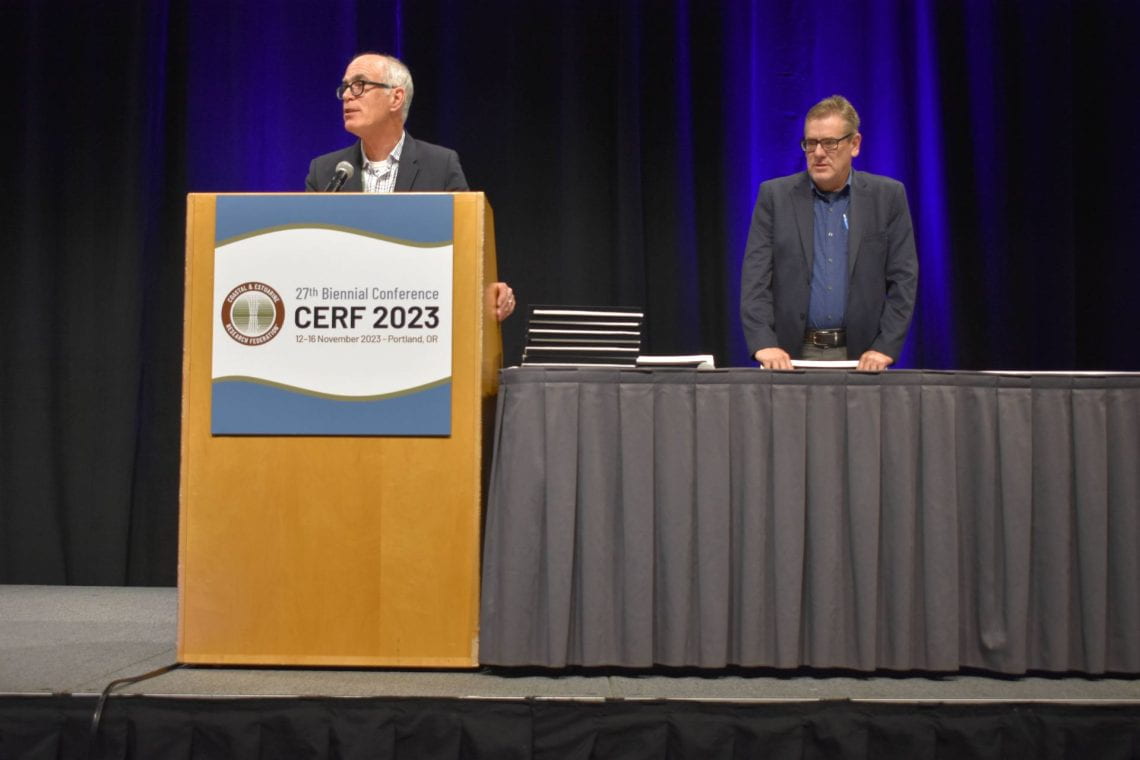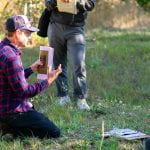
This past fall marked the 27th biennial Coastal Estuarine Research Federation (CERF) conference in Portland, Oregon. This particular event was co-chaired by our very own MSEM professor, Dr. John Callaway who has been a member of CERF for 35 years! Dr. Callaway joined the federation during his time in grad school and has attended nearly every conference since. We got to speak with Prof. Callaway to hear all about his journey into CERF, what this semester holds for him, and why students should get involved in professional societies and attend conferences while they’re still in school.
 CERF is the professional society Prof. Callaway associates most closely with, as the organization works to consider all types of perspectives, from looking at specific organisms to assessing broader management issues. The majority of the conferences have taken place on the East and Gulf coasts, but through Callaway’s recent leadership role, he has helped the conference gain more traction out west. At the recent conference in Portland, 1,400 people attended, with 600 new members. This semester Prof. Callaway is teaching Wetland Ecology and bringing in much of what he has learned at the conferences into the class – especially carbon sequestration, restoration, and climate change.
CERF is the professional society Prof. Callaway associates most closely with, as the organization works to consider all types of perspectives, from looking at specific organisms to assessing broader management issues. The majority of the conferences have taken place on the East and Gulf coasts, but through Callaway’s recent leadership role, he has helped the conference gain more traction out west. At the recent conference in Portland, 1,400 people attended, with 600 new members. This semester Prof. Callaway is teaching Wetland Ecology and bringing in much of what he has learned at the conferences into the class – especially carbon sequestration, restoration, and climate change.
Callaway recommends students join a society such as CERF because the membership cost is often subsidized while you’re still in school. Travel or registration costs may be waived, and there are many scholarship opportunities. He says that it’s important to follow your passion and find a society that speaks to you, as it will serve as a way to build your network and share your knowledge with others. Thinking about the future of ecological work, Callaway believes the biggest challenge will be connecting the science to management, to make sure that current science drives management decisions at state and federal levels. He says the MSEM program is doing this so well and is what really excites him about the work students are carrying out. Callaway highlighted that adaptation strategies are incredibly important for communities to manage ongoing climate impacts. He also notes that we must keep diversity and equity in our conversations, in our work, and in professional societies, as they are essential to finding good strategies that protect the climate and communities.
If you’re interested in joining CERF you can find membership details here.







